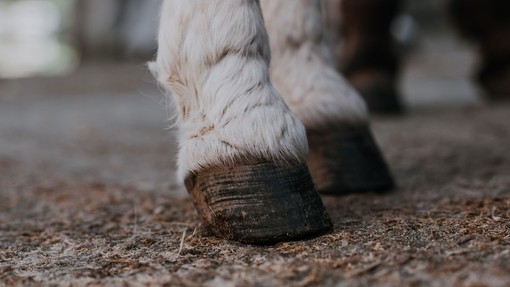Feeding for support
Things you should do
- Feed forages with a low starch and sugar content, preferably under 10% combined sugar and starch.
- Have your ‘farm produced’ forage tested to check the energy and sugar content.
- Commercially produced high fibre ‘laminitic safe’ haylage can be a good option.
- Very low energy short chop products may be useful.
- Check your feeding and bedding straw for retained grain.
- Feed ‘little and often’ to ensure donkeys are trickle feeding as they would in the wild, if possible encourage ad lib feeding, straw is particularly useful for those with good teeth and should be freely available.
- A non-pasture run out area such as a dirt paddock, sand school or bark chipped area will allow the donkey precious exercise time without access to grazing once veterinary advice allows periods of exercise.
- Use an appropriate feed balancer to supplement vitamins/minerals if feeding a straw only diet.
- Contact your vet for specific advice if you have an underweight donkey with PPID or EMS as your donkey will need to be fed very carefully for weight gain, and the programme tailor made.
Things you should avoid
- Avoid all cereal based feeds, donkeys can be maintained and encouraged to gain weight on fibre based products without the need for inappropriate cereal feeds.
- Don’t allow the donkey access to grazing whilst suffering an acute laminitic episode and for chronic cases always restrict grazing by area rather than time at grass, donkeys can eat the same amount in 8 hours of turnout as they can in 24 hours.
- Do not starve the donkey, this may put it at risk of life threatening hyperlipaemia.
- Don’t allow the donkey to graze a frosty pasture on a sunny morning as the level of fructans in the grass may be very high at this time.
- Don’t feed ‘senior’ or ‘conditioning’ feeds even if the donkey is underweight, these feeds are too high in proteins, fats, starch and sugars.
- Avoid the donkey becoming overweight and gradually reduce weight if this is already a problem (see ‘Management for Weight Loss’ factsheet).
- Remember there is no ‘safe’ time to graze a laminitic donkey, fructan levels in grass can spike at any time of day or year with the right weather conditions.
- Avoid feeding sugary treats, encourage the feeding of ‘safe’ treats such as high fibre nuts, fresh mint leaves and small quantities of fruit.
Possible diets that can be used
- For maintenance – Barley or wheat straw with small quantities of HorseHage High Fibre or Timothy Haylage or low starch/sugar hay (hay can often have high levels of sugar and this may not be lost through soaking).
- For weight gain – possible diets include high fibre nuts (Spillers High Fibre Cubes and Saracens Donkey Diet) or Fibre Beet (British Horse Feeds’ high calorie alfalfa-based product), feed in small amounts for very underweight animals. For optimum nutrition supplement with Top Spec Comprehensive Balancer at a rate of 100g/100kg bodyweight per day. We recommend discussing with your vet to devise the most suitable feeding plan for your donkey.
- For weight loss – An ad lib straw diet can be supplemented with Top Spec Donkey Forage Balancer. Fed at 100g per 100kg bodyweight per day, it is an ideal supplement for providing vital vitamins and minerals. It is high in fibre but low in protein, sugar and starch as well as being low in calories so will not promote weight gain and can be used as an important part of a weight reduction programme when the rest of the diet is also calorie controlled.
- For donkeys unable to manage any long fibre – use short chopped fibres designed as forage replacers, fed at 2-3kg per day to satisfy appetite - Mollichaff Donkey is ideal for most donkeys, whereas TopChop Zero is a very low energy chopped straw product devised for weight loss and also suitable for feeding to donkeys with moderate dental disease.
Always introduce changes to the diet gradually and observe your donkey to ensure that it is eating.
Try to avoid feeding your donkeys more than 1 kg of food at time, small frequent meals are best.
Always ensure that donkeys have access to fresh clean water and an equine specific mineral lick if not being fed a vitamin and mineral supplement/balancer. Continually assess your donkey’s body condition and make changes to their diet accordingly.




